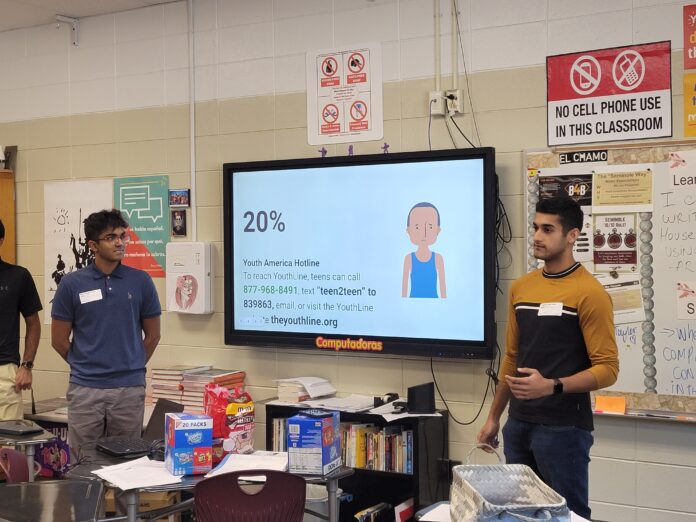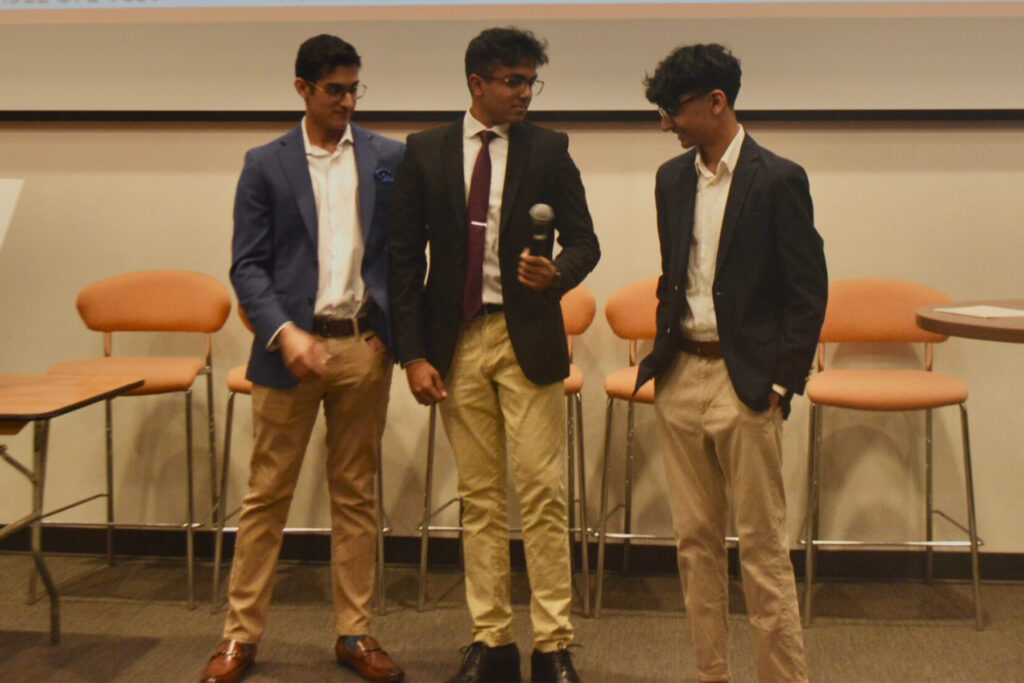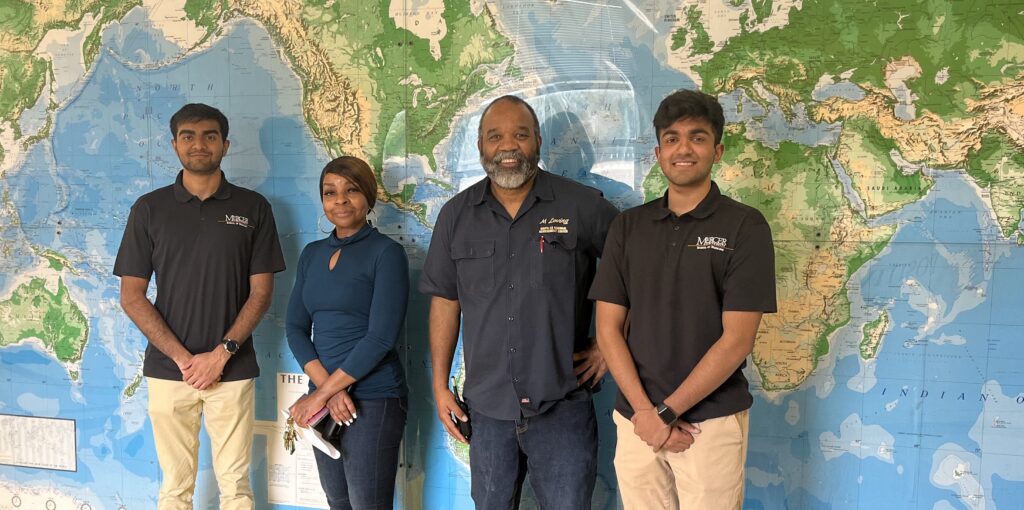
Three Mercer University students noticed a void in mental health education in high schools, so they developed an interactive program to better reach local youth.
Rising sophomores Shan Khan, Manas Patel and Aleem Patni are members of a new student organization called Mercer Y.O.U.T.H., and they piloted their unique curriculum in two schools earlier this year. They hope to expand their work through funding they recently received from Mercer’s Visionary Student Panel mini-grant program.
A personal experience in high school inspired Khan, a biology and global health studies double-major in the University Honors Program, to create Mercer Y.O.U.T.H., which stands for Youth Organization for Understanding and Teaching Mental Health.
“I founded the organization because I lost one of my friends (to suicide) during the 2020 pandemic,” he said. “Even though I couldn’t do something about it immediately since we were all quarantined, I just prolonged the idea until I was in college. With the help of my great friends, Manas and Aleem, we talked about the situation and how we could reinforce (mental health) to the high schools of Georgia.”
Patel, a chemistry major, comes from a rural, underserved area where mental health is an ignored and taboo topic. He saw the problems that created and the need for more awareness about mental health, especially in teens. Patni, on the other hand, saw mental health discussed growing up but not in a meaningful or approachable way. Once a semester, students in his high school would fill the auditorium to hear a required lecture on mental health.
“Through that, I realized you can’t teach mental health by talking about it to someone,” said Patni, a history major and Stamps Scholar in the University Honors program. “When you’re in a big auditorium, every time you speak, it becomes public speaking. It’s always you getting talked to. We came together to try to figure out a way to make this education interactive. We’re not health professionals, but we know the facts from the CDC and can present them in a way that’s fun, engaging and spreads awareness about mental health.”
The three friends sought advice from Mercer’s Counseling and Psychological Services, Visionary Student Panel advisors, and administrators from partner high schools for their project, Patel said. Using information from the Centers for Disease Control and Prevention, they created a presentation with guided discussion and a game-based lesson plan.
Placed in small groups, the high school students are asked questions via PowerPoint about mental health and write their answers on small whiteboards. They get points for correct answers and receive rewards, Khan said.
Patni said the questions aren’t just presented as statistics but in a way that is more relatable. For instance, instead of saying 36% of teens experience severe anxiety, the trio says that one of them experienced severe anxiety in high school.

“It’s more of a discussion starter among students rather than having them memorize the fact itself,” Patel said. “The fact is just a way that they can talk about mental health in a free, open space.”
Their program is between 45 minutes and an hour, but it can be tailored to meet an individual school’s needs. They present in classrooms with a maximum 30 students, rather than in filled auditoriums. This enhances the interaction and makes students more comfortable speaking, Patni said. Any student who doesn’t want to talk can provide feedback anonymously, Khan said.
“What really works for us is the fact that we were in their shoes,” Patni said. “We were high schoolers. We know what they’re going through. That really frees up the students to actually come up to us and talk to us about what they’re going through.”
This past year, Khan, Patni and Patel visited South Georgia Regional Achievement Center in Albany several times and Westside High School in Macon once to give their presentation. Their program was well-received. The high schoolers were surprised by some of the facts, and some saw that they were using unhealthy coping mechanisms.
“They realized how serious of an issue mental health is, and they realized that we’re just like them, and we’re trying to help them,” Patel said. “Peer-to-peer education results in more reception participation and better learning outcomes for students, especially in the mental health space.”
Patni said he saw the “magic” of the presentation the first time he helped with it.
“It really worked,” Patni said. “Every student wanted to say something. They were willing to talk to us. Everyone was having fun. I was contrasting it to my high school experience, and I was like, ‘We really got something here.’ That interaction is the best way to teach someone.”
Mercer School of Medicine’s Center for Rural Health and Health Disparities is helping to provide healthy snacks for the program. With the $1,000 awarded by the Visionary Student Panel, Patni, Khan and Patel would like to buy items like stress balls to give out as incentives. They would also like to create a website with resources that schools can use.
In addition, their future goals include expanding the project to reach more schools and community groups, and diversifying it by involving more Mercer students and creating a Spanish version of the presentation. They gave a keynote speech about their program during Macon Mental Health Matters on May 10.
They also plan to take action to ensure the program continues after they graduate from Mercer because mental health issues aren’t going away anytime soon, Patel said. Ideally, they would like to connect the program with a specific Mercer course.









